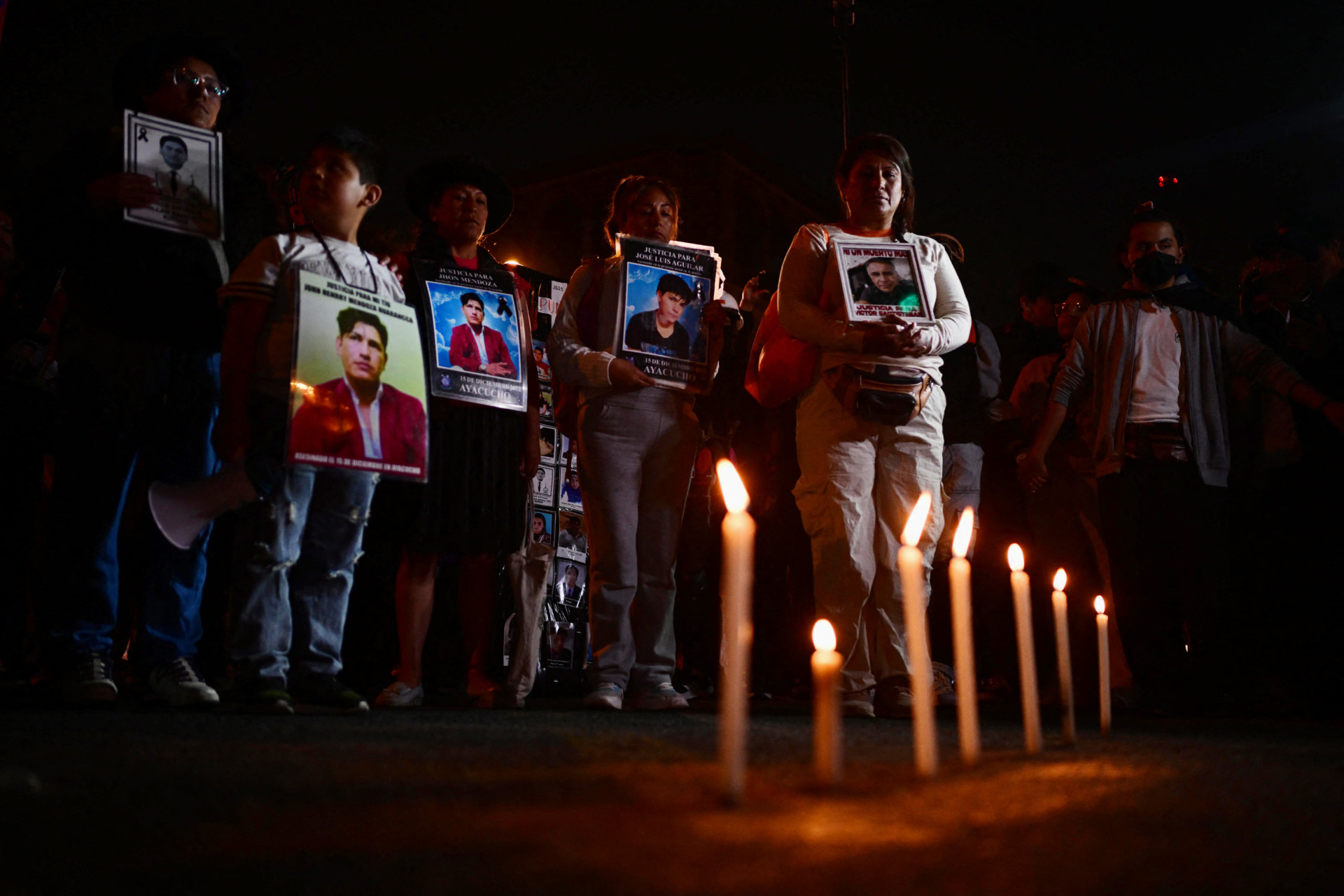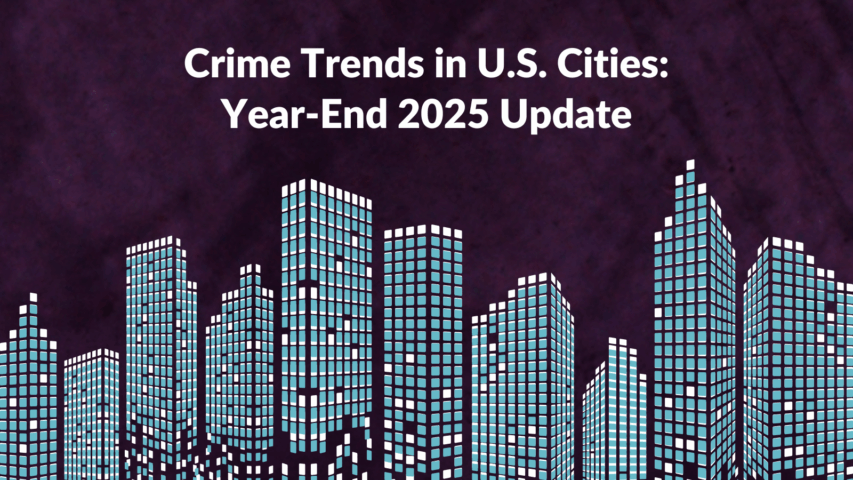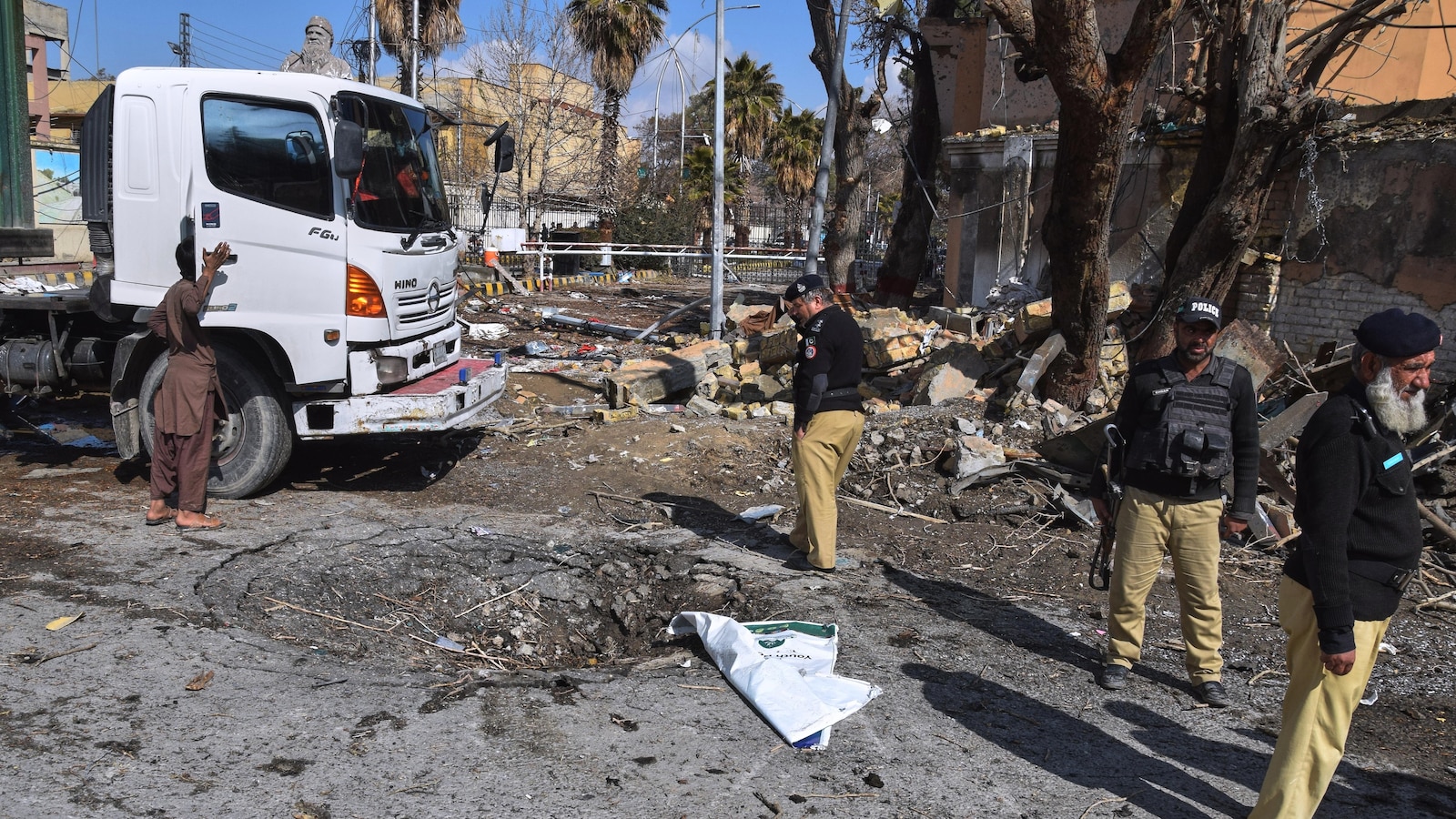Impunity by Design: Latin America’s Quiet Crisis of Accountability – Just Security

Report on Legislative Manipulation and its Impact on Sustainable Development Goals in Latin America
Introduction: A Threat to SDG 16
A concerning trend of legislative and judicial manipulation is emerging across Latin America, posing a direct threat to the achievement of Sustainable Development Goal 16 (Peace, Justice and Strong Institutions). Through procedural and statutory reforms, political elites are systematically weakening the legal frameworks designed to combat organized crime and corruption. This report analyzes this pattern, highlighting its severe implications for the 2030 Agenda for Sustainable Development, with a primary focus on SDG 16 and its interconnected goals.
Systematic Erosion of Justice and Institutional Integrity (SDG 16)
Recent legislative actions in several Latin American nations demonstrate a coordinated effort to dismantle institutional accountability, directly contravening the targets of SDG 16.
Case Study: Peru’s 2024 Legal Reforms
In 2024, Peru’s Congress passed reforms that narrowed the legal definition of “organized crime.” This change has critical implications for sustainable development:
- Undermining SDG Target 16.4: By removing offenses such as money laundering and illicit enrichment from the scope of organized crime statutes, the reform directly hinders efforts to reduce illicit financial flows and combat organized crime.
- Regressing on SDG Target 16.5: The new definition makes it substantially more difficult to prosecute complex corruption cases involving political actors, representing a significant setback in the goal to reduce corruption and bribery.
- Weakening SDG Target 16.6: The reform strips prosecutors of essential investigative tools, weakening the effectiveness and accountability of judicial institutions.
A Regional Pattern of Institutional Decay
The situation in Peru is indicative of a broader regional trend where the core tenets of SDG 16 are being systematically eroded:
- Ecuador: The “Purga” case revealed deep collusion between judicial officials and organized crime. The subsequent political backlash, including proposals to limit prosecutorial powers, threatens the development of the “effective, accountable and transparent institutions” mandated by SDG Target 16.6.
- El Salvador: The replacement of Constitutional Court justices with loyalists and the passage of a “Foreign Agents Law” restricting NGOs represent a direct assault on judicial independence and fundamental freedoms. These actions undermine SDG Target 16.3 (Promote the rule of law) and SDG Target 16.10 (Ensure public access to information and protect fundamental freedoms).
- Guatemala: Following the expulsion of the UN-backed International Commission against Impunity (CICIG), successive administrations have neutered judicial independence, forcing prosecutors into exile and undermining the institutional capacity to fight corruption (SDG 16.5).
- Venezuela: The “Anti-Solidarity Law” effectively criminalizes civil society oversight by granting authorities the power to dissolve NGOs. This directly contravenes SDG Target 16.7, which calls for responsive, inclusive, and participatory decision-making.
Consequences for the Broader 2030 Agenda
The erosion of legal and institutional safeguards has cascading negative effects on multiple Sustainable Development Goals.
Impact on Safety, Equality, and Economic Growth
- SDG 11 (Sustainable Cities and Communities): The failure to prosecute organized crime has led to a surge in extortion and homicides in countries like Peru and Ecuador, making communities fundamentally unsafe and unsustainable.
- SDG 10 (Reduced Inequalities): When legal systems are repurposed to protect powerful elites, it institutionalizes impunity and deepens inequality, ensuring that justice is not equally accessible to all, a core principle of SDG Target 16.3.
- SDG 8 (Decent Work and Economic Growth): Endemic corruption and the failure of the rule of law create an unstable economic environment that deters investment and undermines the foundations of sustainable economic growth.
Challenges to International Cooperation (SDG 17)
This trend presents a fundamental challenge to SDG 17 (Partnerships for the Goals). International assistance programs aimed at judicial reform and anti-corruption capacity-building lose their effectiveness when domestic legal frameworks are deliberately engineered to fail. Multilateral frameworks depend on functional domestic enforcement, which is collapsing from within.
Recommendations for Realigning with the SDGs
To counteract this democratic backsliding and ensure progress on the 2030 Agenda, a strategic realignment of international and domestic efforts is required.
- Prioritize Legal Integrity in International Assistance: Donor support must shift from merely building institutional capacity to ensuring the integrity of the legal frameworks themselves. Funding and diplomatic engagement should be conditional on laws that support, rather than obstruct, the targets of SDG 16.
- Protect Civil Society to Uphold SDG 16.7 and 16.10: International partners must invest in the legal protection and financial stability of civil society organizations, which are essential for ensuring the participatory governance and accountability central to sustainable development.
- Strengthen Regional Monitoring of Legislative Capture: Regional bodies should develop robust mechanisms for tracking and reporting on legislative changes that undermine the rule of law. This will create a transparent evidence base for holding governments accountable to their SDG 16 commitments.
- Redefine Success Metrics for Democratic Assistance: The success of democracy and governance programs must be measured by their impact on achieving SDG 16 targets, specifically the functional ability of a state to investigate and prosecute high-level corruption and organized crime.
Analysis of Sustainable Development Goals in the Article
1. Which SDGs are addressed or connected to the issues highlighted in the article?
The primary SDG addressed throughout the article is SDG 16: Peace, Justice and Strong Institutions. The article’s central theme is the systematic weakening of legal and judicial systems in several Latin American countries to protect political elites and criminal networks from prosecution. This directly relates to the goal of building effective, accountable, and inclusive institutions at all levels.
- Erosion of Justice and Rule of Law: The article details how countries like Peru, Ecuador, El Salvador, Guatemala, and Venezuela are passing laws that redefine organized crime, shield allies from corruption charges, and undermine prosecutorial independence. This constitutes a direct assault on the principles of justice and the rule of law, which are core to SDG 16.
- Weakening of Institutions: The text describes a pattern of “hollowing out” key institutions. Examples include the replacement of Constitutional Court justices in El Salvador, the neutering of the Public Ministry in Guatemala, and the legislative dismantling of prosecutorial tools in Peru. This demonstrates a move away from strong, accountable institutions.
- Corruption and Illicit Financial Flows: The legislative changes discussed are explicitly designed to make it harder to investigate and prosecute crimes like money laundering, illicit enrichment, bribery, and collusion. This directly undermines the global effort to combat corruption and illicit finance, a key aspect of SDG 16.
- Restrictions on Civil Society and Fundamental Freedoms: The article highlights new laws in El Salvador and Venezuela that restrict the activities of non-governmental organizations (NGOs), particularly those involved in monitoring human rights and corruption. This curtails fundamental freedoms and public access to information, which are also components of SDG 16.
2. What specific targets under those SDGs can be identified based on the article’s content?
Based on the article’s focus on institutional decay and impunity, several specific targets under SDG 16 are relevant:
- Target 16.3: Promote the rule of law at the national and international levels and ensure equal access to justice for all. The article illustrates a regression from this target. By rewriting laws to protect powerful actors, governments are creating a two-tiered justice system where accountability does not apply equally, thus undermining the rule of law. The article states, “they are rewriting the rules so accountability no longer applies.”
- Target 16.4: By 2030, significantly reduce illicit financial and arms flows, strengthen the recovery and return of stolen assets and combat all forms of organized crime. The legislative reform in Peru, which removed offenses like “money laundering” and “illicit enrichment” from the scope of organized crime statutes, is a direct countermeasure to this target. It weakens the state’s ability to combat organized crime and its financial underpinnings.
- Target 16.5: Substantially reduce corruption and bribery in all their forms. The article provides multiple examples of actions that undermine this target. In Ecuador, the “Purga” case exposed a network of bribery and influence-peddling to secure judicial impunity, while subsequent legislative proposals aim to constrain prosecutors, effectively shielding corruption.
- Target 16.6: Develop effective, accountable and transparent institutions at all levels. The “hollowing out” of judiciaries and public ministries, as described in Guatemala and El Salvador, directly contradicts this target. The replacement of independent judges with “loyalists” in El Salvador is a clear example of institutions being made less accountable and transparent.
- Target 16.10: Ensure public access to information and protect fundamental freedoms, in accordance with national legislation and international agreements. This target is undermined by laws aimed at silencing civil society. El Salvador’s “Foreign Agents Law” and Venezuela’s “Anti-Solidarity Law” are designed to “suppress dissent and protect the political class from external scrutiny” by constraining NGOs that monitor and report on government actions.
3. Are there any indicators mentioned or implied in the article that can be used to measure progress towards the identified targets?
The article does not cite official SDG indicators, but it provides substantial qualitative and quantitative information that can serve as de facto indicators of negative progress (regression) on the identified targets.
- For Target 16.3 (Rule of Law):
- Implied Indicator: The number and nature of legislative reforms that narrow criminal definitions or restrict prosecutorial powers. The article explicitly details Peru’s 2024 reform as a key example.
- Implied Indicator: The number of judges and prosecutors investigating corruption who are jailed or forced into exile, as mentioned in the case of Guatemala.
- For Target 16.4 (Organized Crime):
- Mentioned Indicator: Homicide rates. The article notes Ecuador’s “spiraling homicide rate—now one of the highest per capita in the hemisphere” as a consequence of compromised legal systems and unchecked organized crime.
- For Target 16.5 (Corruption):
- Implied Indicator: The number of high-level corruption and organized crime investigations stalled or dismissed due to new legal restrictions. The article notes that in Peru, “many cases involving political corruption and criminal collusion now fall outside the scope of specialized anti-organized crime units.”
- Implied Indicator: Public trust in institutions. The article mentions that this trend “erodes public trust—creating the perception that justice is only for the weak.”
- For Target 16.6 (Accountable Institutions):
- Implied Indicator: Changes in the independence of the judiciary. The article points to the removal and replacement of five Constitutional Court justices in El Salvador in 2021 as a clear measure of declining judicial independence.
- For Target 16.10 (Fundamental Freedoms):
- Implied Indicator: The existence of restrictive laws targeting civil society. The article names specific legislation, such as the “Foreign Agents Law” in El Salvador and the “Anti-Solidarity Law” in Venezuela, which serve as concrete indicators of shrinking civic space.
SDGs, Targets, and Indicators Table
| SDGs | Targets | Indicators (Mentioned or Implied in the Article) |
|---|---|---|
| SDG 16: Peace, Justice and Strong Institutions | 16.3: Promote the rule of law and ensure equal access to justice. |
|
| SDG 16: Peace, Justice and Strong Institutions | 16.4: Reduce illicit financial flows and combat all forms of organized crime. |
|
| SDG 16: Peace, Justice and Strong Institutions | 16.5: Substantially reduce corruption and bribery. |
|
| SDG 16: Peace, Justice and Strong Institutions | 16.6: Develop effective, accountable and transparent institutions. |
|
| SDG 16: Peace, Justice and Strong Institutions | 16.10: Ensure public access to information and protect fundamental freedoms. |
|
Source: justsecurity.org
What is Your Reaction?
 Like
0
Like
0
 Dislike
0
Dislike
0
 Love
0
Love
0
 Funny
0
Funny
0
 Angry
0
Angry
0
 Sad
0
Sad
0
 Wow
0
Wow
0














































































